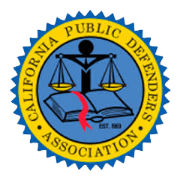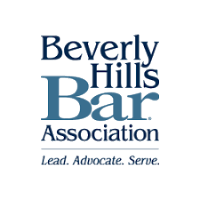
Facing Medicare overbilling accusations can shake the very foundation of your medical practice. I’ve seen firsthand how these charges can devastate careers and reputations. But there’s hope. With the right Medicare overbilling defense strategy, you can protect your practice and your future. Let’s explore what you need to know to mount a strong defense against these serious allegations.
Table of Contents:
- Understanding Medicare Overbilling Accusations
- The Immediate Steps in Medicare Overbilling Defense
- Building a Strong Medicare Overbilling Defense
- The Role of Compliance Programs in Medicare Overbilling Defense
- Negotiating with Prosecutors
- Protecting Your Professional License
- The Long-Term Impact of Medicare Overbilling Accusations
- Conclusion
Understanding Medicare Overbilling Accusations
Medicare overbilling isn’t just a simple billing error. It’s a serious accusation that can have severe consequences, including hefty fines, exclusion from federal healthcare programs, and even imprisonment. The government takes these cases very seriously, often viewing them as attempts to defraud the Medicare system.
In my years of experience as a healthcare fraud defense attorney, I’ve seen overbilling accusations stem from various issues. Sometimes it’s an honest mistake in coding, potentially due to the complexities of medical billing. Other times, it’s a misunderstanding of complex billing rules. Regardless of the cause, the impact can be devastating, impacting not only your finances but also your standing within the medical community and your relationships with patients.
Common Types of Medicare Overbilling
Let’s break down the most common types of Medicare overbilling I’ve encountered:
- Upcoding: Billing for a more expensive service than what was provided, essentially misrepresenting the level of service to garner higher rates.
- Unbundling: Charging separately for services that should be billed together as a package, a tactic that can inflate the total payments received from Medicare.
- Billing for services not rendered: Charging for procedures or tests that didn’t happen, a blatant violation that can have serious legal ramifications.
- Misrepresenting diagnoses: Altering diagnoses to justify unnecessary treatments or services, a serious breach of medical ethics and legal boundaries.
Each of these actions can trigger an investigation, potentially leading to serious legal consequences, including civil lawsuits and criminal charges. It’s important to remember that Medicare overbilling not only affects the program’s integrity but also impacts Medicare beneficiaries who rely on its sustainability.
The Immediate Steps in Medicare Overbilling Defense
When you’re hit with Medicare overbilling accusations, your first reactions are crucial. I always advise my clients to take these immediate steps:
- Stay calm. Panic leads to mistakes. You want to approach this situation with a clear and rational mindset to avoid making impulsive decisions that could harm your case.
- Don’t destroy any documents. That’s a surefire way to make things worse. Tampering with potential evidence, even unintentionally, can raise red flags and lead to additional scrutiny.
- Contact a healthcare fraud defense attorney immediately. Having experienced legal counsel on your side is essential in navigating the complex legal landscape of Medicare fraud defense. Your attorney will guide you through each step, ensuring your rights are protected, and the best possible defense is mounted.
- Avoid discussing the case with anyone but your lawyer. Sharing information about the case with individuals other than your legal representative could potentially jeopardize your defense.
These initial actions can significantly impact the outcome of your case. It’s natural to feel overwhelmed and uncertain, but by seeking legal counsel promptly, you’re taking a proactive step in safeguarding your rights and interests.
The Importance of Legal Representation
I can’t stress enough how vital it is to have experienced legal counsel when facing Medicare overpayment accusations. Medicare fraud cases are complex. They involve intricate laws and regulations that most healthcare providers aren’t familiar with. It’s important to understand the time period for which the overbilling allegedly occurred as it can influence the legal strategy.
A skilled healthcare attorney can help you navigate these treacherous waters, providing expert guidance and support throughout the process. They’ll work to protect your rights, preserve evidence, and start building your defense strategy from day one. Your attorney will also be able to assess whether the accusations fall under federal or state jurisdiction, which can impact the legal proceedings.
Building a Strong Medicare Overbilling Defense
Developing a robust defense strategy is crucial when facing accusations. Here’s how I approach it:
- Thorough review of billing records: This involves meticulously examining your billing records, including electronic medical records, to identify any discrepancies or inconsistencies. This process requires a keen eye for detail and a thorough understanding of medical billing codes, such as those used for Medicare Advantage plans and other Medicare Parts.
- Analysis of coding practices: We delve into your coding practices, examining if they align with industry standards and Medicare’s billing guidelines. This involves scrutinizing your billing processes and ensuring they meet the required standards.
- Examination of patient files: We review patient files to verify that the billed services align with the documented medical necessity and treatment provided. This step helps establish the legitimacy of your billing practices and counter allegations of fraudulent activities.
- Interviews with staff members: Conducting interviews with staff members involved in the billing process can provide valuable insights into your practice’s operations and highlight any potential areas of concern.
- Consultation with billing experts: Seeking input from qualified independent billing experts can offer a neutral perspective on your billing practices and help strengthen your defense. These experts can provide insights into industry best practices, identify potential vulnerabilities in your billing system, and offer guidance on improving your compliance measures.
Each of these steps helps us understand the full picture, identify potential weaknesses in the prosecution’s case, and develop a strategic defense tailored to your specific circumstances.
Challenging the Evidence
One key aspect of Medicare overbilling defense is scrutinizing the evidence against you. We look for inconsistencies, errors in data analysis, or misinterpretations of billing codes. We leave no stone unturned in our pursuit of uncovering any flaws or weaknesses in the prosecution’s case.
I’ve seen cases where simple clerical errors, potentially caused by outdated electronic medical record systems, were misinterpreted as intentional fraud. By meticulously examining the evidence, we can often uncover these misunderstandings and use them to strengthen your defense, potentially leading to a dismissal or reduction of charges.
Demonstrating Lack of Intent
Intent is a crucial element in Medicare fraud cases. The prosecution must prove that you knowingly and willfully overbilled Medicare. This is often where we can build a strong defense, focusing on demonstrating that any billing discrepancies were unintentional and did not stem from a deliberate attempt to defraud the system.
We focus on showing that any billing errors were unintentional. This might involve:
- Documenting your compliance efforts: Highlighting your proactive approach to compliance by providing documentation of your compliance program, including training materials, internal audits, and policies.
- Showing your history of correcting billing mistakes: Demonstrating a pattern of identifying and rectifying billing errors, showcasing your commitment to ethical billing practices and willingness to correct unintentional mistakes.
- Demonstrating your commitment to ongoing education in billing practices: Providing evidence of continuous education and training for you and your staff, demonstrating a dedication to staying updated on current billing practices and ensuring accurate coding.
By highlighting these factors, we can often convince prosecutors that there was no criminal intent behind the billing discrepancies, paving the way for a more favorable outcome.
The Role of Compliance Programs in Medicare Overbilling Defense
A robust compliance program can be your best defense against Medicare overbilling accusations. It not only helps minimize the risk of errors but also demonstrates a proactive commitment to ethical billing practices. I always advise my clients to implement comprehensive compliance measures, including:
- Regular internal audits: Conduct regular reviews of your billing practices and documentation to identify and address potential issues proactively.
- Ongoing staff training on billing practices: Provide ongoing training to your staff, ensuring they are well-versed in proper coding, documentation requirements, and the latest Medicare guidelines, helping to prevent unintentional errors and ensure accurate billing practices.
- Clear policies and procedures for coding and billing: Establish clear, written policies and procedures that outline your practice’s approach to coding, billing, and documentation. This provides a standardized framework for your staff to follow, minimizing inconsistencies and errors.
- A system for reporting and addressing potential issues: Implement a confidential reporting mechanism that allows staff members to report potential compliance concerns without fear of retaliation. This encourages a culture of transparency and accountability.
Having these measures in place shows your commitment to following Medicare rules and regulations. It can be a powerful tool in your defense strategy, demonstrating your dedication to ethical billing practices.
Leveraging Your Compliance Efforts
If you’re facing accusations, we’ll leverage your compliance efforts in your defense. We’ll show how you’ve taken proactive steps to prevent fraud and address any issues that arise, demonstrating your good faith effort to comply with regulations.
This approach can often lead to more favorable outcomes. Prosecutors and investigators are more likely to view honest mistakes leniently when they see a genuine commitment to compliance, potentially resulting in reduced charges or penalties.
Negotiating with Prosecutors
In many Medicare overbilling cases, negotiation is key to achieving a favorable resolution. As your defense attorney, my goal is to resolve the case in the most favorable way possible, protecting your rights, reputation, and license to practice. This often involves negotiating with prosecutors to reduce charges or penalties.
I’ve found that a collaborative approach can be effective. By working with prosecutors, we can often find solutions that address their concerns while protecting your interests. Open communication and a willingness to engage in good-faith negotiations can pave the way for a mutually agreeable resolution, potentially minimizing the impact on your practice.
Potential Resolutions
Depending on the specifics of your case, we might pursue various resolutions:
- Dismissal of charges: If we can successfully challenge the evidence or demonstrate a lack of intent, we may be able to convince the prosecution to dismiss the charges against you. This is the ideal outcome as it clears your name and avoids any penalties or sanctions.
- Reduction of charges: In some cases, the prosecution may be willing to reduce the severity of the charges, particularly if we can demonstrate that the overbilling was unintentional or if you have a strong compliance program in place.
- Civil settlements instead of criminal charges: We may be able to negotiate a civil settlement, which involves repayment of overbilled amounts and potential fines, to avoid the more serious consequences of criminal charges.
- Probation or deferred prosecution agreements: In certain circumstances, we may be able to negotiate a probationary period or a deferred prosecution agreement, allowing you to avoid a conviction if you comply with certain conditions, such as implementing a robust compliance program or making restitution.
Each case is unique, and we’ll work together to determine the best strategy for your situation, exploring all available options and pursuing the most favorable outcome for your specific circumstances.
Protecting Your Professional License
One of the most significant concerns in Medicare overbilling cases is the potential impact on your professional license. Losing your license can end your career, so protecting it is a top priority in our defense strategy.
We’ll work closely with licensing boards to address any concerns. Our goal is to resolve the Medicare overbilling accusations while preserving your ability to practice medicine, advocating for your rights and ensuring your perspective is heard.
Addressing Licensing Board Concerns
Licensing boards often have their own investigations and proceedings, independent of any criminal or civil actions taken by the government. We’ll represent you in these proceedings, presenting evidence of your commitment to ethical practice and compliance.
By proactively addressing licensing board concerns, we can often prevent or minimize disciplinary actions against your license. We’ll work diligently to demonstrate your fitness to practice, potentially avoiding suspension or revocation of your license.
The Long-Term Impact of Medicare Overbilling Accusations
Even after resolving the immediate legal issues, Medicare overbilling accusations can have long-lasting effects, impacting your reputation and practice. We’ll work with you to address these ongoing challenges, including:
- Repairing your professional reputation: We understand that these accusations can tarnish your reputation, leading to a loss of trust among your peers and within the community. We will work with you to develop a strategy to address these concerns, potentially through public statements, community engagement, or other initiatives to rebuild your standing.
- Rebuilding relationships with patients and colleagues: Accusations can strain relationships with patients and colleagues, leading to a loss of referrals or difficulty collaborating on patient care. We will help you navigate these challenges, facilitating open communication and addressing any concerns to foster healing and rebuild trust.
- Implementing stronger compliance measures to prevent future issues: We will work with you to review and strengthen your compliance program, ensuring it aligns with industry best practices and minimizes the risk of future issues.
- Addressing any financial repercussions from the case: We will help you assess and address any financial implications, such as lost revenue, legal fees, or potential settlements, exploring options to mitigate financial losses.
Our goal is not just to resolve the immediate legal crisis, but to help you move forward and rebuild your practice, guiding you through each step of the process.
Conclusion
Facing Medicare overbilling accusations is undoubtedly one of the most challenging experiences a healthcare provider can encounter. However, it’s crucial to remember that an accusation is not a conviction. With the right Medicare overbilling defense strategy, you can protect your practice, your reputation, and your future.
Remember, you’re not alone in this fight. With experienced legal counsel and a proactive approach, you can navigate these treacherous waters and emerge stronger on the other side. Don’t let Medicare overbilling accusations derail your career. Take action now to protect everything you’ve worked so hard to build.





